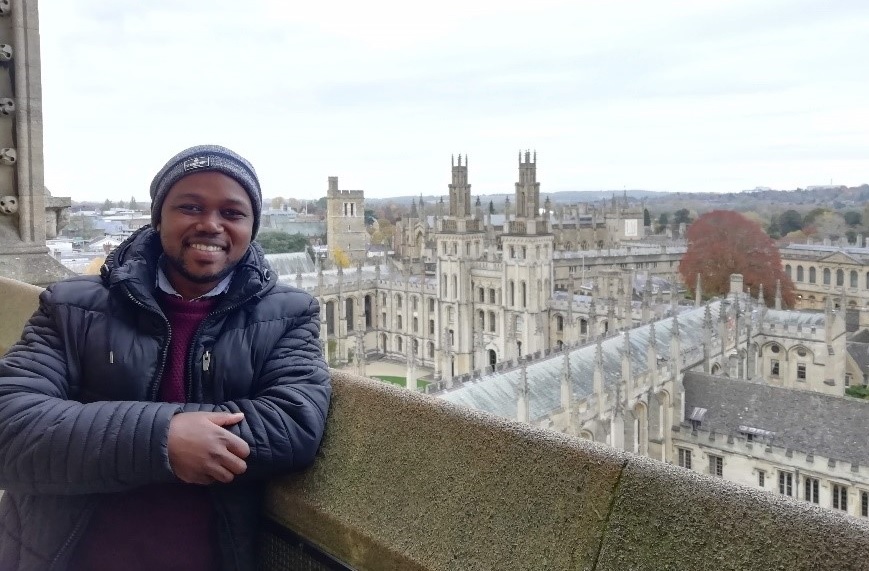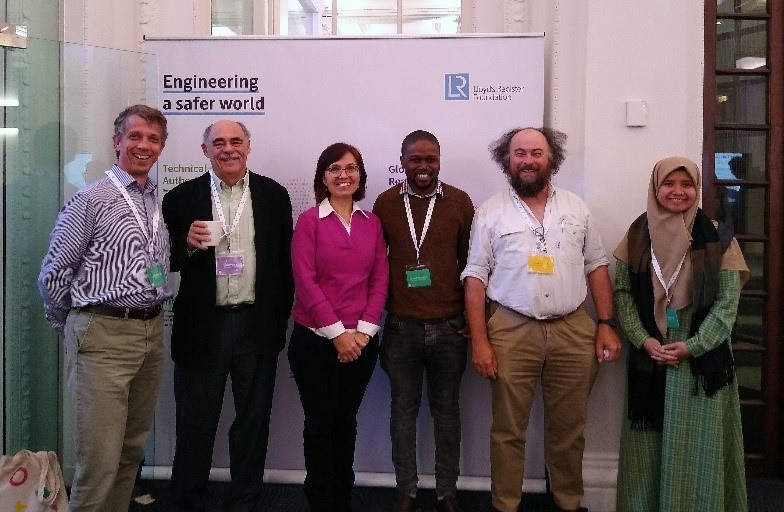 I am a PhD hydrology student at the University of KwaZulu-Natal (UKZN, South Africa). Last year, I visited the UK for two months as part of the Advanced Professional and Academic Development Program which is led by the Institute of Natural Resources (INR), in partnership with the International Water Security Network (IWSN), the University of the West of England (UWE Bristol) and the Centre for Water Resources Research of UKZN. I am currently employed as a lecturer in the Hydrology department at the University of Zululand. My PhD research investigates the hydrological and socioeconomic impacts of replacing commercial forest plantations with macadamia nuts through measuring the water use of these two land uses in a water-stressed South African catchment.
I am a PhD hydrology student at the University of KwaZulu-Natal (UKZN, South Africa). Last year, I visited the UK for two months as part of the Advanced Professional and Academic Development Program which is led by the Institute of Natural Resources (INR), in partnership with the International Water Security Network (IWSN), the University of the West of England (UWE Bristol) and the Centre for Water Resources Research of UKZN. I am currently employed as a lecturer in the Hydrology department at the University of Zululand. My PhD research investigates the hydrological and socioeconomic impacts of replacing commercial forest plantations with macadamia nuts through measuring the water use of these two land uses in a water-stressed South African catchment.
During my time in the UK, I visited three universities: UWE Bristol, Oxford and Cranfield. At UWE Bristol, I was hosted by Professor Chad Staddon, the Director of IWSN. I presented a seminar titled ‘The resilience of the UK’s fresh fruit system to water related risks: a case study from a semi-arid South African catchment’ and attended the Lloyd’s Register Foundation’s International Conference in London. While based at Cranfield, I attended the ‘About Drought’ meeting in London in November, which was very interesting and informative as it revealed the general public’s perceptions of drought in the UK, and it included the use of innovative tools to conduct and present research. I also spent a few days at Oxford University where I had meetings with members of the Environmental Change Institute, who I work with, together with the INR and Cranfield, on a Global Food Security Program (GFS) funded project investigating the Resilience of the UK Food System.

left: Chad Staddon, Robert Varady, Adriana Zuniga-Teran, Mlu Shabalala,
Mark Everard, Thanti Octavianti
On this trip, I learned a lot of research-related skills through interacting with experts in climate, water, land, food, energy and engineering. I observed the similarities and differences between UK and South African universities, and took home a lot of information to share with my colleagues. As this was the first time that I travelled outside the Southern African region, it is important to reflect on the experience. Overall, I had an amazing stay in the UK and I would like to thank Duncan Hay (INR Executive Director) and Chad Staddon for offering this opportunity. I am grateful that everything went smoothly, from international flights to local travel and accommodation. In that regard, I would like to particularly thank Wayne Powell (IWSN) for making most of the arrangements and for dedicating time to give me tips for travelling around the UK. I would also like to acknowledge Dr Chloe Sutcliffe and Professors Tim Hess and Jerry Knox from Cranfield University for their hospitality throughout my stay.
The most amazing thing about the trip is the impact it had on my family and friends – I did not realise how big this trip was until I saw how excited (and somewhat worried) they were for me. Observing the excitement levels build up before, during and after the trip inspires me to work harder! That’s the biggest impact the trip had – a reflection of where I come from and how far I can go, through education. I hope this can be an inspiration for all young people, particularly from disadvantaged communities, to believe that education can be used as a tool to change their lives (and the lives of their families) for the better.
